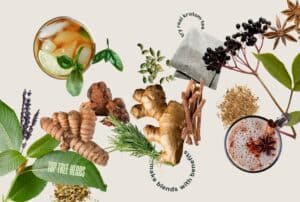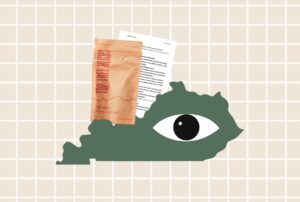In today’s fast-paced and demanding world, more and more people are looking for ways to reduce stress and anxiety, improve focus, nurture their minds, and improve productivity. If left unmanaged, chronic stress can wreak havoc on the body and mind. It leads to adrenal fatigue, sleep problems, and decreased productivity. Not only can this put you in a bad mood, but it can make a busy day at work unbearable. Adaptogen teas are a great way to improve your mood and productivity.
While coffee has long been the go-to drink for increasing energy and productivity, it also comes with a caveat; it can elevate your levels of cortisol, the stress hormone.
No matter how much caffeine you slurp down in your espresso, it can’t counteract the adverse effects of chronic stress and adrenal fatigue. Instead, to find motivation, you need something to help keep your stress at bay.
As a result, a growing number of people are discovering caffeine-free teas and adaptogenic herbs—plants that help the body fight stress, support metabolic function and increase mental and physical vitality. Not only can you get a wide range of benefits from adaptogenic herbs, but depending on what type of tea you use and how the different ingredients complement one another, you can potentiate the adaptogenic effects.
So, let’s look at the best adaptogen tea blends and their ingredients!
What Are the Benefits of Adaptogen Tea?
Adaptogens are plants that naturally increase the body’s resilience to stress. Whether that stress is from anxiety, physical wear, trauma, fatigue, gut biome issues, autoimmune issues, etc., adaptogens can help you better handle that stress, normalizing your physiological functions and reducing the toll of stress.
The main reason people use adaptogens is to help protect, balance, and restore the body and mind. Adaptogenic herbs are commonly consumed as supplements. Depending on the type, they come in the form of capsules, powders, and tinctures. However, for many people, adaptogen drinks are most desirable, especially in the form of herbal tea.
Tea is one of the best ways to consume adaptogens for their benefits. Although adaptogen teas do not contain highly concentrated amounts of adaptogenic herbs, they are a natural form of consumption that’s free from fillers, sweeteners, and preservatives.
The ingredients list for adaptogen teas is typically short, straightforward, and all-natural, so you can know exactly what you’re consuming. Furthermore, adaptogen tea is also a more affordable (and tasty) option to get the benefits of adaptogen herbs.
A number of tea companies offer adaptogen blends, so you have leeway to examine the ingredients and pick whatever benefits you. One interesting adaptogen combination is a blend of herbs and spices with kratom tea. When paired with kratom tea, the effects of adaptogens can feel potentiated, allowing you to feel relaxed and focused.
What Qualifies as an Adaptogenic Herb?
Adaptogenic herbs grow naturally all around the world, where many different traditions and cultures have deemed them important. Many people confuse Ayurveda herbs with adaptogen herbs, which is likely because Ayurveda, the ancient practice of alternative medicine in India, embraces the use of several native adaptogens.
Ayurveda is based on the idea of balancing bodily systems. It uses diet, herbal remedies, physical exercise, meditation, and yogic breathing, so it makes sense why adaptogens would benefit Ayurveda practice. One famous example of an Ayurvedic adaptogen is ashwagandha.
While adaptogenic herbs have existed for millions of years and have been used by different cultures for millennia, it wasn’t until 1947 that N.V. Lazarev, a Soviet and Russian scientist, first coined the term. Lazarev chose the term “adaptogen” to describe the general effect that increases the body’s resistance to stress.
The Soviet Union funded the first research into adaptogens for improving strength and performance. In the 50s, two other Russian research scientists expanded on the adaptogen definition. This eventually led us to the contemporary guidelines for what qualifies as an adaptogenic herb.
Today, the definition of an adaptogen is an agent that:
- Has a normalizing effect on a wide range of bodily functions
- Has a nonspecific action that helps the body overcome stress regardless of the direction of stress
- Is nontoxic when used in normal dosage
Research on Adaptogens
A number of studies have examined the effects of adaptogens, finding that these plants provide the benefit of increasing one’s tolerance to stress. Interestingly, the exact definition of “adaptogen” is confusing, even for researchers. Many plants that websites and stores frequently describe as “adaptogens” actually may not meet the guidelines for a primary adaptogen.
Part of the confusion regarding “what is an adaptogen” is likely due to the fact that researchers have created two categories, primary and secondary adaptogens, and are still figuring out which herbs with adaptogenic traits belong in which category. As a result, not many people know about this difference between primary and secondary adaptogens.
So, what are secondary adaptogens, then, and how do they differ from primary adaptogens? The definition of secondary adaptogens refers to herbs that either meet only 2-3 of the primary adaptogens or have not been studied enough to be moved to the “primary adaptogen” category yet.
What Is Kratom Tea, and Why Combine Adaptogens and Kratom?
One of the best types of tea to combine with adaptogens is kratom tea. Kratom (Mitragyna speciosa), is an evergreen tree in the coffee family native to Southeast Asia. There, it has a long history of traditional use. In Thailand, for example, workers have chewed fresh kratom leaves or drunk kratom tea to stave off fatigue and improve productivity.
The secret to the effects of kratom tea comes from the 40 or so naturally occurring alkaloids found in the leaves of the kratom tree. When consumed together, kratom tea and adaptogens produce a unique effect that goes beyond the result of any one component alone. Thus, high-quality kratom makes for one of the best adaptogen tea blend ingredients available.
As researchers work to unravel the mysteries behind kratom’s alkaloids and discover the secrets behind various adaptogenic compounds, you can enjoy experimenting with different synergistic herbal tea blends from home.
When combined with adaptogenic herbs, you never know what may end up becoming your favorite kratom tea blend. You might even find that you enjoy a certain blend in the morning and another adaptogenic tea blend for sleep.
Plus, all the different flavor combinations make for a truly unique drink. Enjoying your tea is undoubtedly a fun way to help unwind from a stressful day and reach a calm, meditative state.
What Are the Best Herbal and Adaptogen Tea Blends?
As scientists are still studying the benefits of adaptogens, not all adaptogens are equally understood. That being said, when you’re looking to add an adaptogen tea blend to your routine for stress relief and focus, you may find that it’s helpful to start with the adaptogens that have more clinical research backing them.
Here’s a list of some of the best adaptogen herbs for tea, according to recent research.
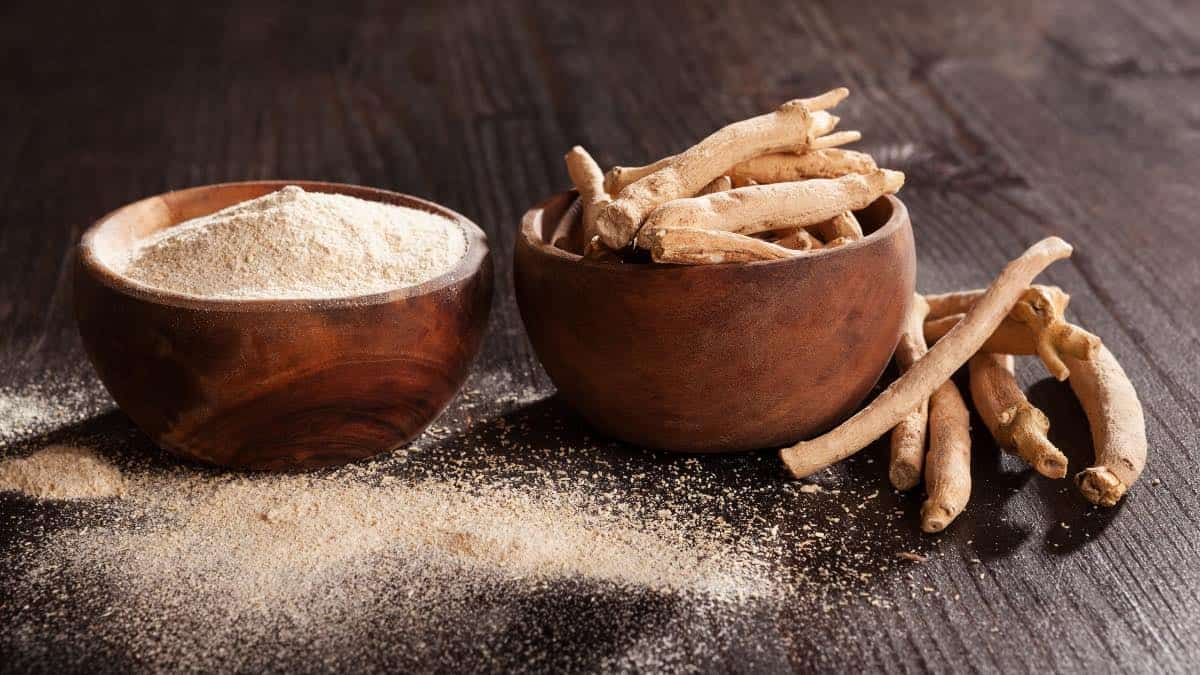
Ashwagandha
Ashwagandha (Withania somnifera) is a primary adaptogen. There are a growing number of clinical trials examining the benefits of ashwagandha for stress relief and strength training. Without a doubt, ashwagandha is a great choice of herb to include in an adaptogen tea blend. Not only is ashwagandha tea useful for relieving stress and anxiety, but if you’re into the gym, it may help boost your gains when consumed before a workout.
A 2019 clinical trial examined the anxiety-relieving effects of ashwagandha extract powder in stressed healthy adults. The study found that the ashwagandha treatment groups had a significant decrease in cortisol levels and reported lower stress levels. Over the eight weeks, there was a substantial improvement in sleep quality in the group consuming ashwagandha.
Another clinical trial found that ashwagandha can help stressed and overweight adults reduce food cravings, enhance their mental well-being, improve eating behaviors, and establish hormonal balance.
The benefits of Ashwagandha tea can also extend to those looking to boost their athletic performance. A study examining ashwagandha and muscle strength and recovery found that ashwagandha supplementation can lead to significant increases in muscle mass and strength, indicating it may be beneficial for resistance training. This study also found that in addition to reducing cortisol levels, ashwagandha can increase testosterone.
Of all the Ayurvedic adaptogens, ashwagandha is without a doubt one of the most promising options to consume in an adaptogen tea. Paired with kratom tea, organic ashwagandha root can help you feel motivated and ready to start your day, improve your workout, or boost your work productivity.
Guayusa
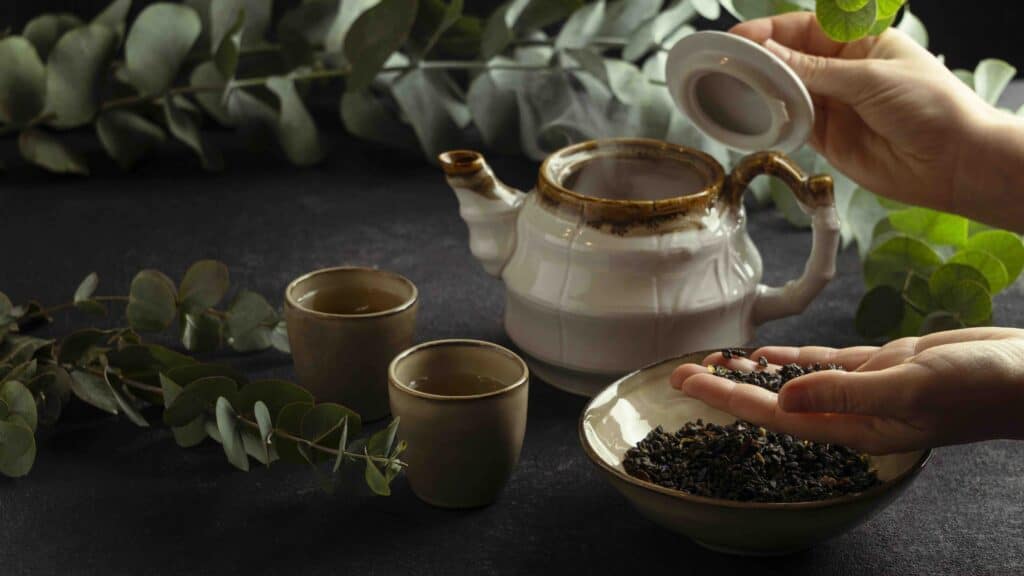
Another adaptogen that has gained popularity in recent years is guayusa. Guayusa (Ilex guayusa) is an adaptogen derived from an evergreen tree, which grows naturally in Argentina, Southern Brazil, Paraguay, and Uruguay.
Guayusa is one of the best-known adaptogens from the continent, where people have traditionally consumed guayusa tea to boost energy and promote mental relaxation. In South America, Guayusa tea is a popular alternative to green tea. Outside of South America, guayusa is a common ingredient in energy drinks.
The benefits of guayusa are intriguing, as it is an adaptogen that contains L-theanine, an amino acid found in green tea and some mushrooms. L-theanine is known for providing focus and tranquility.
In addition to L-theanine, this adaptogen also contains a variety of phytonutrients, polyphenols, and alkaloids. Like yerba mate tea and dark chocolate, Guayusa contains the secondary metabolite theobromine. Again, similar to yerba mate tea and green tea, guayusa tea contains relatively high amounts of caffeine.
The caffeine content in Guayusa tea is around 41-80mg per cup, depending on the brewing time, the freshness of the leaves, and the region of origin. Due to its caffeine content, antioxidant activity, and natural energy-boosting compounds, guayusa tea is a popular alternative to coffee.
Although more research is needed to clarify its efficacy, recent studies on this adaptogen have shown that the benefits of Guayusa tea are promising and include gut health benefits, anti-inflammatory activity, anti-obesity activity, blood sugar regulation, neuroprotective activity, and more.
If you like green tea or want to replace your morning coffee with a benefit-packed adaptogen blend, you may consider organic guayusa tea with kratom. The synergy between the compounds and alkaloids of both plants makes for a wonderful pick-me-up brew.
Amalaki (Indian Gooseberry)
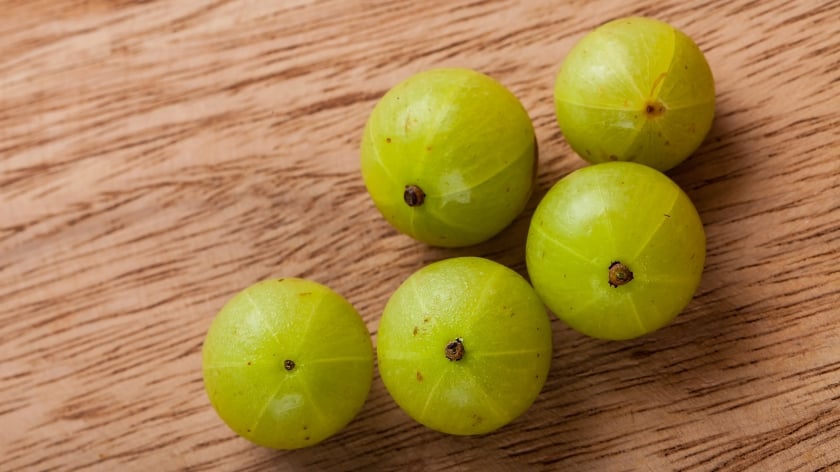
Amalaki (Phyllanthus emblica), also called Indian Gooseberry, amla, or emblic, is a deciduous tree native to southern Asia. Buddhist literature makes reference to Amalaki, and the adaptogen is essential plan for use in Ayurveda medicine. In culinary traditions, the amla fruit is eaten raw or cooked and is used in savory dishes, such as dal, as well as sweet dishes, such as amle ka murabbah, in which the Indian gooseberries are candied in sugar syrup.
The taste of amalaki is known for its dynamic aroma and flavor; Indian gooseberry tea is known to have a sour and astringent taste initially but develops sweet and rich undertones as it brews. The amalaki fruit is rich in vitamin C and may have potential antioxidant activity and heart health. More research is still needed to assess the effects of amalaki and its adaptogenic properties, but there is evidence that it may have a range of positive benefits for wellness.
Amalaki’s Adaptogen Potential
In addition to potentially promoting heart health, concentrated forms of amalaki have been indicated to aid in the normalization of fat levels in the blood, reduce oxidative stress, have anti-inflammatory effects, reduce triglycerides and bad cholesterol, reduce blood pressure, regulate blood sugar, protect the liver, and strengthen the immune system.
Indian Gooseberry has also been studied to help reduce Gastroesophageal reflux disease (GERD) symptoms. The study found that compared to the placebo group, the amla group had reduced frequencies of heartburn.
So, if you want to nourish your health and help your body become more resilient to stress, amalaki tea may be a good choice. As it is not a highly concentrated form, its effects may not be as strong as adaptogen tinctures or capsules. However, as more research is needed on adaptogens in general, consuming amalaki in tea is a safer bet. To get the most out of amla tea and leave your body feeling extra fresh and balanced, consider organic amalaki blended with Bali kratom.
It’s All in the Ingredient List: Why We Pick Every Herb with Care
If you’ve made it this far, it’s probably safe to say you’re someone who puts a lot of thought into their tea. You know that every little ingredient can make a difference, so why not be extra scrupulous? After all, what is it that separates premium tea from ordinary tea? We think the answer lies in the ingredient list, where we believe it’s good to be picky.
Kratom tea itself is pretty amazing, and we could’ve stopped there with our tea options. We could’ve left it at three strains; we could’ve thrown in a couple of flavors and been done for the day.
But we’re not just kratom lovers; we adore tea in all its forms, and the benefits of adaptogens are too good to ignore. That’s why we include some top-notch organic adaptogens and other delightful herbs and spices in our collection of kratom tea blends. For those looking to maximize their benefits in one delicious cup, we hope our unique selection of hand-picked tea blends offers something you’ll absolutely love.

